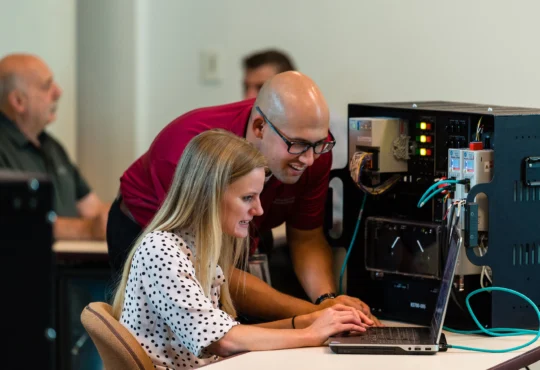
Mastering the Art of a High Ticket Closer: Strategies, Skills, and Secrets to Close Premium Deals
Understanding the Role of a High Ticket Closer
A high ticket closer is a professional who specializes in closing premium deals and high-value transactions. Unlike traditional sales roles, this position focuses on understanding client needs at a deep level and presenting solutions that justify a significant investment. High ticket closers operate in industries where trust, credibility, and persuasion are critical. Their work goes beyond simply selling a product; it involves guiding clients through a thoughtful buying process. Businesses rely on high ticket closers to boost revenue because each closed deal has a substantial impact on profitability. These professionals often serve as the bridge between a company’s premium offerings and the client’s expectations. Developing the skills to become a high ticket closer requires dedication, practice, and strategic learning.
Core Skills and Traits of a High Ticket Closer
To succeed in high ticket sales, certain traits and skills are essential. Communication is at the heart of the role, as it allows closers to convey value and build trust effectively. Emotional intelligence helps them read client reactions and respond appropriately. Active listening ensures the client feels understood, while objection handling demonstrates expertise and confidence. Resilience is crucial because even experienced closers encounter rejection and setbacks. Confidence combined with empathy creates a persuasive yet respectful sales approach. Mastering these skills can significantly increase the success rate of closing high-value deals.
The High Ticket Sales Process Explained
High ticket sales follow a structured process designed to nurture relationships and maximize conversions. It begins with identifying and qualifying ideal leads, ensuring the time spent is focused on high-potential prospects. Building rapport quickly is essential, as trust is often the deciding factor in large investments. Crafting offers that align with the client’s needs and demonstrate clear value strengthens credibility. Objections are common, but a skilled closer can turn hesitations into agreement through thoughtful responses. Various closing techniques, such as assumptive closing and consultative selling, are tailored specifically for high ticket transactions. The process requires patience, attention to detail, and the ability to navigate complex conversations successfully.
Tools and Technology for High Ticket Closers
Technology plays a significant role in enhancing the efficiency of high ticket closers. Customer Relationship Management systems help track interactions, follow-ups, and deal progress. Sales automation tools reduce administrative work, allowing more time to focus on relationship building. Analytics provide insights into client behavior, helping tailor communication strategies. Communication platforms, including video conferencing and messaging apps, facilitate remote and global closing. AI-powered solutions assist with lead scoring and predicting conversion likelihood. Staying updated with these tools allows high ticket closers to operate at peak efficiency. Leveraging the right technology creates a competitive advantage in the premium sales space.
High Ticket Closing in Different Industries
High ticket closing is applicable across multiple sectors, each with unique challenges and opportunities. In coaching and consulting, closers help clients see the value of premium programs and services. Luxury real estate relies heavily on the closer’s ability to match properties with the right buyers. B2B SaaS companies use high ticket closers to convert leads into subscriptions for high-value software solutions. Health, wellness, and lifestyle services often require a consultative approach to demonstrate life-changing benefits. Each industry demands specialized knowledge and the ability to translate value into tangible benefits. Adapting strategies to different markets ensures closers can meet diverse client expectations effectively.
Developing Your Career as a High Ticket Closer
Becoming a high ticket closer requires strategic learning and consistent practice. Certifications and specialized courses offer structured guidance on techniques, objection handling, and mindset development. Mentorship programs provide real-world insights and accelerate skill acquisition. Building a personal brand helps establish credibility and attract high-value clients. Networking within relevant industries can open doors to premium opportunities. Continuous learning, including reading sales literature and attending workshops, ensures skills remain sharp. Scaling from individual closing to leading a sales team can further enhance career growth. High ticket closers who invest in personal development consistently outperform those who rely solely on experience.
Common Challenges and Mistakes to Avoid
Even experienced high ticket closers encounter pitfalls that can hinder success. Overpromising or failing to deliver value erodes trust and damages reputation. Ignoring the client’s specific needs can result in failed deals and lost opportunities. Poor follow-up strategies often leave potential deals unresolved. Misjudging timing or pricing can cause prospects to hesitate or walk away. Focusing solely on the sale rather than the client’s goals reduces effectiveness. Avoiding continuous skill improvement can lead to stagnation in performance. Recognizing and addressing these challenges is key to becoming a highly successful high ticket closer.
FAQ
What is the average earning potential of a high ticket closer?
High ticket closers can earn substantial commissions, often ranging from tens of thousands to hundreds of thousands annually depending on industry, skill level, and deal volume.
Can anyone become a high ticket closer with training?
Yes, with dedicated training, practice, and mentorship, most individuals can acquire the necessary skills to succeed in high ticket sales.
How long does it take to master high ticket closing skills?
Mastery varies, but consistent practice and ongoing education over 6 to 12 months can produce significant improvements in performance.
What are the top strategies to handle objections in high ticket sales?
Techniques include active listening, empathizing with concerns, reframing objections as opportunities, and highlighting the unique value proposition of the offering.
How does remote closing differ from in-person high ticket closing?
Remote closing relies heavily on digital communication, virtual rapport building, and leveraging technology for presentations and follow-ups, whereas in-person closing benefits from physical presence and body language cues.
Takeaway
High ticket closers play a pivotal role in converting premium leads into valuable deals by combining skill, strategy, and the right mindset. Success in this role is grounded in empathy, communication, and persistence, along with mastery of specialized techniques and tools. By understanding client needs, adapting strategies across industries, and continuously improving skills, aspiring closers can achieve high earning potential and make a substantial impact in their chosen field.









